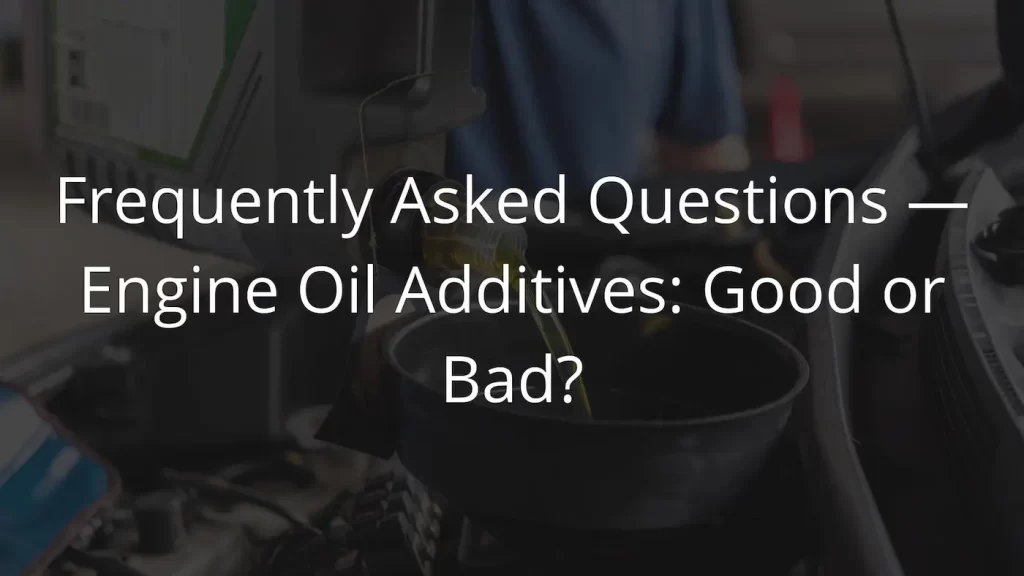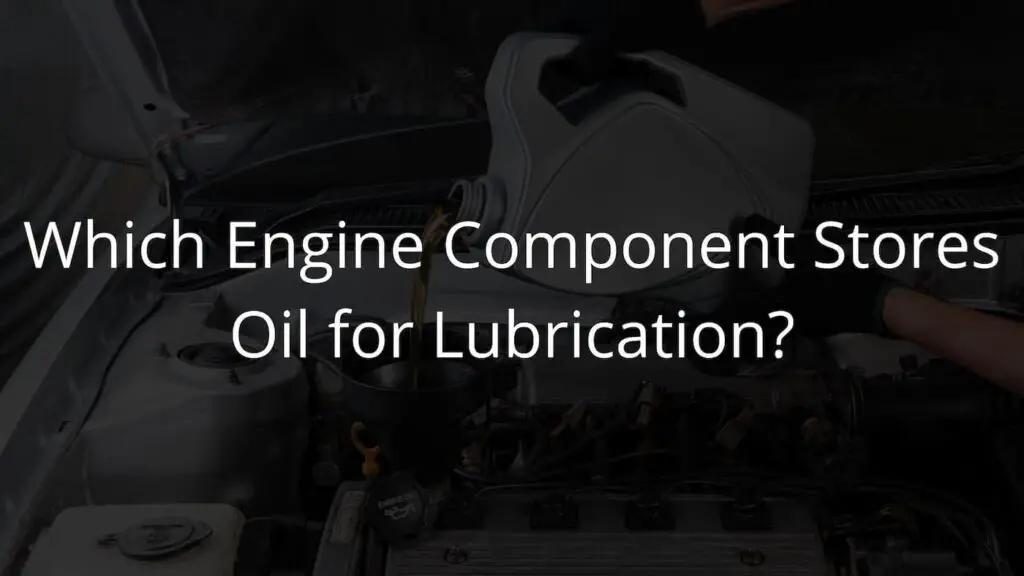Increased friction makes it difficult for car parts to move easily and efficiently. That’s why it’s important to use good engine oil and engine oil additives in your vehicle. The engine oil additives enhance the effectiveness of engine oil.
Read on to learn more about engine oil additives and how they help improve the lubrication of your engine.
Purpose of Engine Oil Additives
Engine oil additives are chemical compounds designed to help improve the performance of engine oil.
Most engine oils come with added additives. However, as an engine oil product goes through oxidation and decomposition, it ends up losing some of its additives. Therefore, you need to use high-quality engine oil with more additives.
Is It Necessary To Use an Engine Oil Additive?
The short answer is no. Engine oil additives aren’t compulsory.
However, engine oil additives help increase its lifespan and performance. They assist in maintaining the vehicle between services and reducing the need for expensive repairs and replacements.
A brand-new car may function well in the beginning even without additives. However, over time, your engine may experience wear and tear due to friction. On the other hand, a pre-owned or older vehicle may already have developed rust and corrosion. You can’t completely eliminate those defects with additives, but you can slow down the process and improve the performance of the car.
Types of Engine Oil Additives
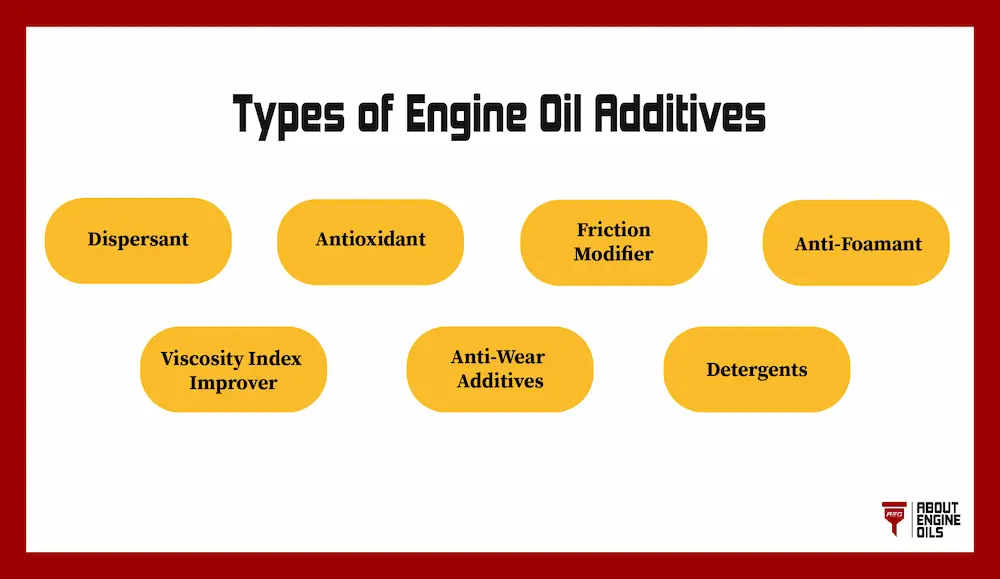
Before purchasing any engine oil additive, it’s wise for you to go through these various types of engine oil additives.
1. Dispersant
Dispersants are surfactant molecules with both hydrophilic (water-attracting) and hydrophobic (water-repelling) properties. These properties allow dispersants to bind with water and oil to prevent their separation.
This causes the debris and dirt to suspend in oil rather than settling on engine parts. This will help prevent corrosion.
2. Antioxidant
Oxidation reaction leads to the formation of sludge. For this reason, oil formulations are enriched with antioxidants. They scavenge oxygen molecules and prevent their reaction with oil molecules. This helps prevent sludge formation.
3. Friction Modifier
Friction modifiers are added to engine oil for the reduction of wear and friction on engine parts. The modifiers help reduce the coefficient of friction present between moving parts.
4. Anti-Foamant
Anti-foamants stabilize the oil surface to reduce the foaming tendency. The foam can cause the loss of lubricating properties in the oil. This leads to wear and tear on all moving engine parts.
5. Viscosity Index Improver
Viscosity index improvers allow for the free flow of oil throughout the engine. This allows the engine oil to coat the parts that need protection. These additives help maintain the consistency of oil as external temperatures may alter it.
6. Anti-Wear Additives
Anti-wear additives coat parts and surfaces of the engine to help protect against wear and tear. They can also neutralize motor acids and repel water to slow down the process of oxidation and corrosion.
7. Detergents
They remove and neutralize acids, impurities, oils, and deposits. Detergents make all these soluble to prevent the formation of sludge in the engine.
Advantages and Disadvantages of Using Engine Oil Additives
Here are the pros and cons of using engine oil additives:
Advantages
- Reduce friction between moving parts.
- Improve your engine’s performance.
- Make your engine last longer by protecting it against wear and tear.
- Help you save money on fuel costs by making your engine more efficient.
- Work with all kinds of engine oil, whether synthetic or mineral.
- Reduce foaming- accumulation of bubbles that develops around the crankshaft.
- Reduce sludge buildup.
- Prevent oil from developing gaps during circulation — a phenomenon usually referred to as an oil film break.
Disadvantages
- Anti-foaming agents in engine oil additives can sometimes have a larger concentration. This will promote more foaming.
- The detergents additives have a negative affect on friction additives, working against them.
- Reduction in fuel economy due to added sulfur additives.
- Damage to catalytic converters.
- Added expense.
Factors To Consider While Choosing an Engine Oil Additive
Here are some factors to keep in mind when you go about choosing an engine oil additive.
- The first factor you should consider while choosing an engine oil additive is its category. The different classes of engine oil additives are
- Dispersed
- Anti-oxidant
- Anti-corrosion
- Anti-wear
- Depressor
- Washing Detergent
- The second factor to consider is the climate. Different climates require different types of additives. For example, cold climates require additives that help reduce engine wear during start-ups, while hot climates require additives that help protect against corrosion and deposits.
Best Engine Oil Additives
We’ve done the research — so you don’t have to. Here are the best engine oil additives:
1. Lucas Heavy Duty Oil Stabilizer
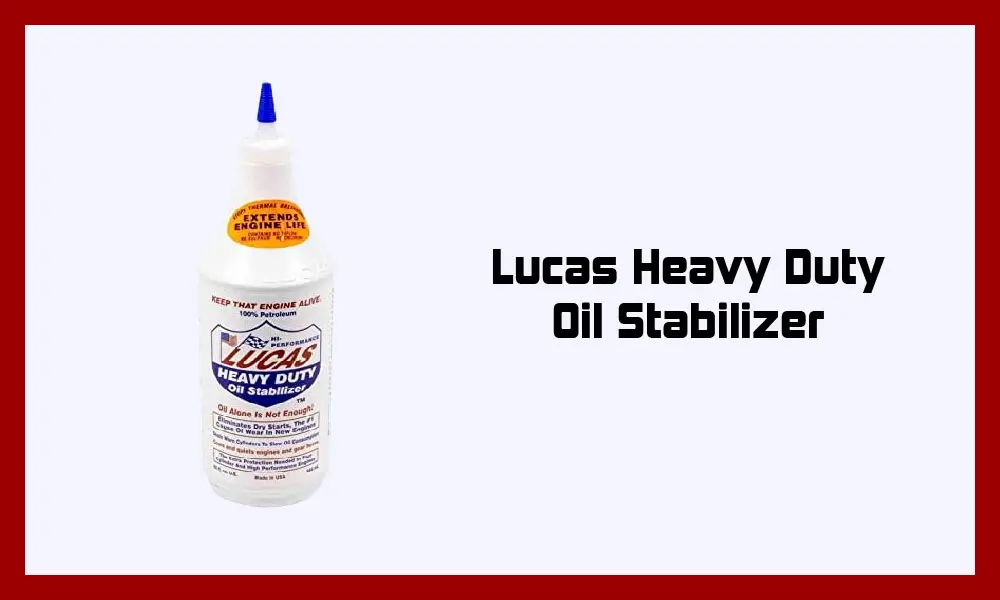
Lucas heavy-duty oil stabilizer doesn’t just coat the engine parts in space-age material. It makes the engine oil stickier to comply with the up-to-date standards and requirements. Besides, it comes with better viscosity. This way, the engine’s metal surfaces are coated without any foreign acids or solids.
Pros:
- Helps improve oil pressure levels in older engines
- Modifies engine oil according to requirements
- One bottle lasts over many oil changes
Cons:
- Needs to be added with each oil change
2. Marvel Mystery Oil
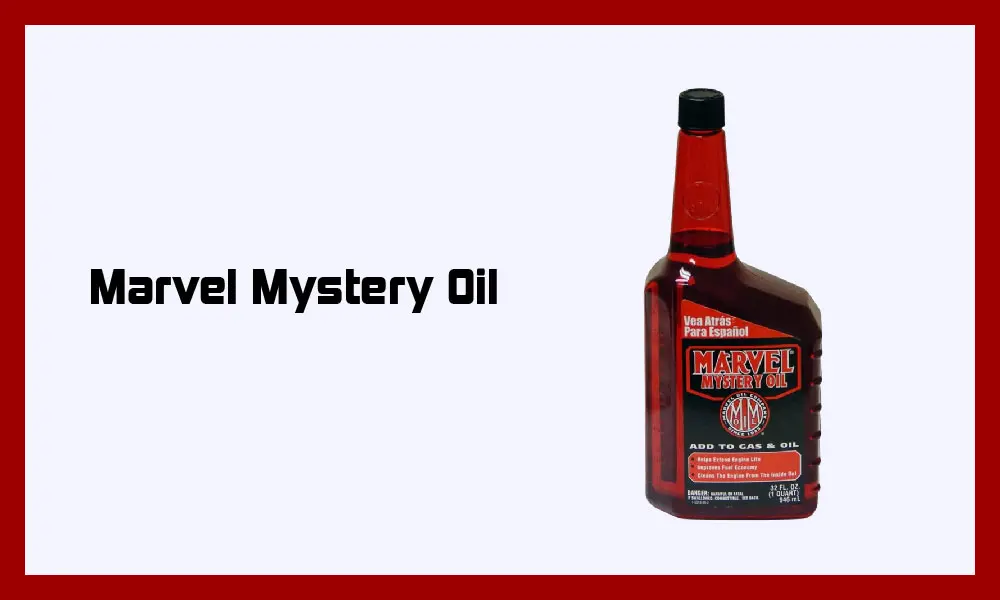
Marvel Mystery Oil is one of the most refined engine oil additives on the market. Firstly, it cleans the oiling system from the buildup of sludge. Secondly, it reduces further build-up.
Pros
- May be added to both fuel and oil
- Helps protect the power steering system and automatic transmission
Cons
- Does not work with vehicles running on ethanol blends
Final Thoughts: Engine Oil Additives: Good or Bad?
To optimize the performance of your engine, you need the best engine oil.
Explore our blog for more information on engine oils.

